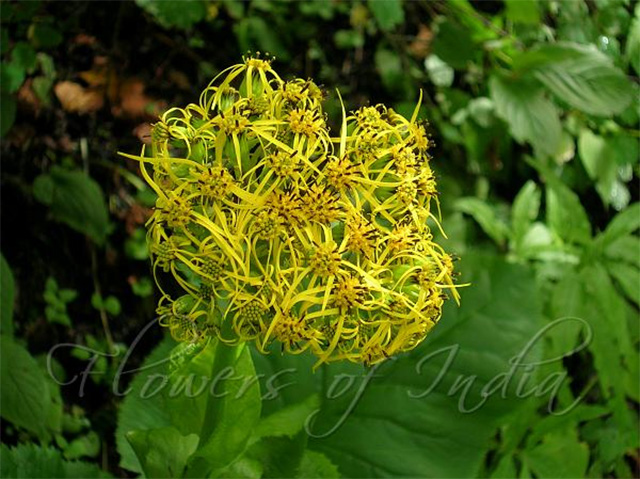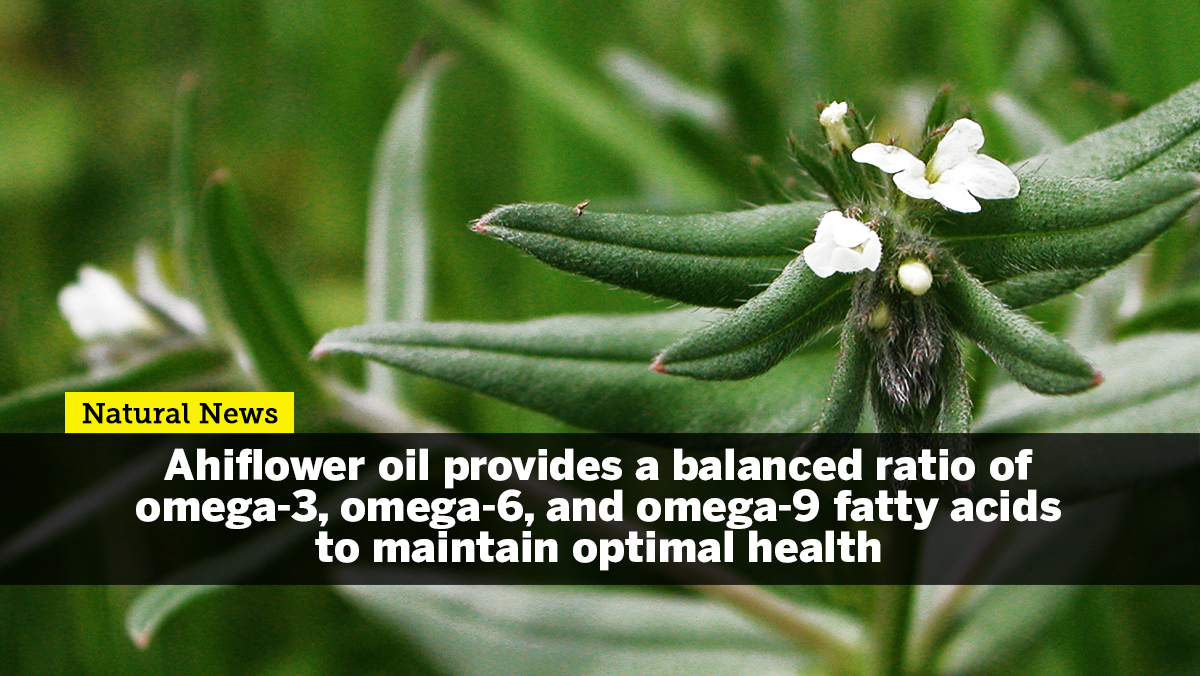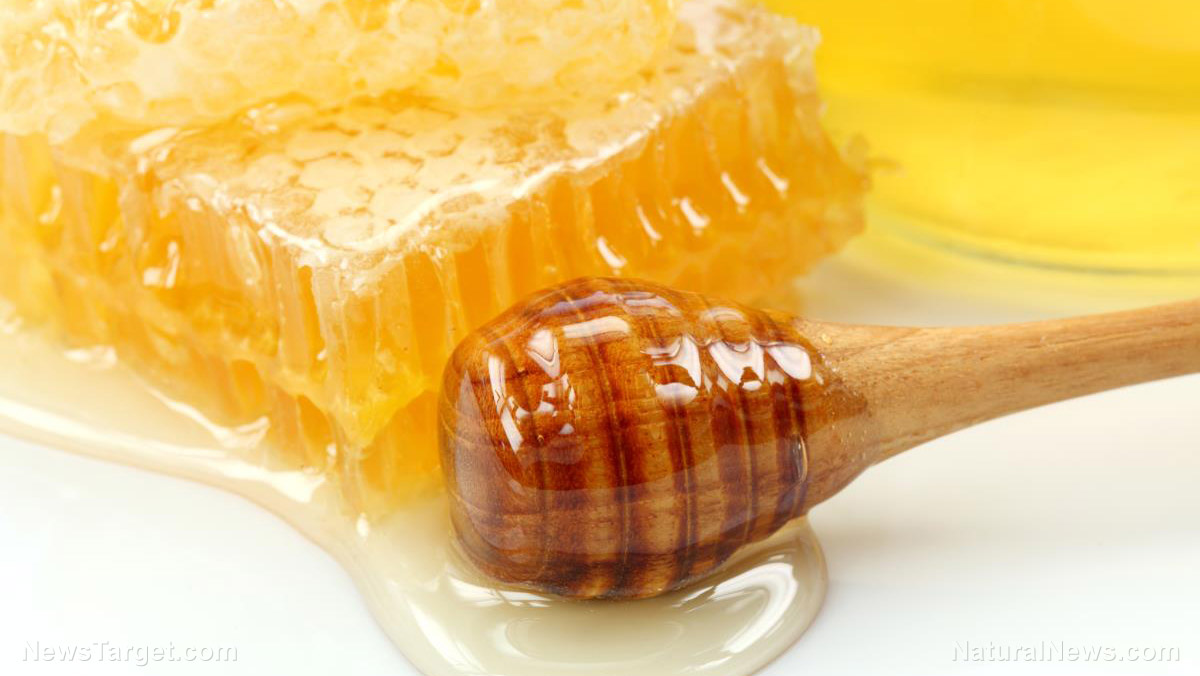Essential oil of stem clasping ligularia from the sunflower family found to have antibacterial properties
10/10/2019 / By Evangelyn Rodriguez

Ligularia amplexicaulis, commonly known as stem clasping ligularia, is a perennial herb that belongs to the Asteraceae (sunflower) family. It grows in the Himalayan region of Uttarakhand, India. L. amplexicaulis is considered as a medicinal herb, and its stems, leaves, and flowers are used in Tibetan medicine to treat vomiting caused by indigestion. In a recent study published in The Journal of Essential Oil Research, researchers from Kumaun University in India evaluated the essential oil of L. amplexicaulis to determine its active components and biological activity. They found that the oil is an effective antibacterial that can be used against Gram-negative and Gram-positive bacteria.
The composition and antibacterial activity of Ligularia amplexicaulis
The aim of the study was to identify the active components of L. amplexicaulis essential oil and evaluate the oil’s biological activity. To do this, the researchers collected plants from two different locations – Tungnath and Munsiyari, in Uttarakhand, India – and isolated essential oil samples from their aerial parts using steam distillation. They then analyzed the oil samples separately using capillary GC-FID and GC/MS.
The researchers reported that the oil samples showed quantitative variation with respect to major constituents. They also found that the oil samples were rich in monoterpene hydrocarbons. They identified a total of 47 compounds present in L. amplexicaulis and listed the following as its major bioactive components:
- Limonene
- p-cymen-8-ol
- alpha-pinene
- p-cymene
100% organic essential oil sets now available for your home and personal care, including Rosemary, Oregano, Eucalyptus, Tea Tree, Clary Sage and more, all 100% organic and laboratory tested for safety. A multitude of uses, from stress reduction to topical first aid. See the complete listing here, and help support this news site.
Limonene is a chemical that can be extracted from certain plants and – more commonly – in the peels of oranges and other citrus fruits. Limonene can be used to treat many conditions. It is also a common ingredient of food flavorings, cosmetics, insect repellents, and household cleaning products. Limonene is a terpene – a hydrocarbon with a strong odor that protects plants from predators and parasites. According to studies, limonene possesses anti-inflammatory, antioxidant, anti-stress, and disease-preventive properties. (Related: The antimicrobial and antioxidant potential of folded orange oils.)
p-Cymen-8-ol, also known as 2-(4-methylphenyl)propan-2-ol or 2-(4-Methylphenyl)-2-propanol, is a clear liquid (alcohol) with a herbaceous celery-like odor. It can be found in many essential oils and fresh fruits. Like limonene, it is often used as a food flavoring ingredient. Alpha-pinene or a-pinene is another terpene that can be found in coniferous trees like pine, the herb rosemary, and even in cannabis. This compound is said to exhibit anti-inflammatory and antimicrobial properties.
p-Cymene is a pale liquid that gives off a fresh citrus aroma. It is a monoterpene that is also known by other names, such as p-cymol, p-methylcumene, camphogen, or 4-cymene. Many essential oils, in particular those of anise, oregano, eucalyptus, coriander, and mace, contain p-cymene. It is often used as a flavoring for cakes and beverages and for enhancing fragrances. Several studies have reported that p-cymene exhibits antibacterial, antifungal, antinociceptive (inhibits pain), analgesic, and anti-inflammatory activities.
The researchers reported that the L. amplexicaulis oil samples showed significant antibacterial activity against Gram-negative bacteria, such as Escherichia coli, Agrobacterium tumefaciens, Klebsiella pneumoniae, Xanthomonas phaseoli, Salmonella enterica, and Gram-positive Bacillus subtilis, Staphylococcus aureus, and Enterococcus faecalis. Moreover, they observed that a minimum inhibitory concentration of 31.25 microliter per milliliter (ul/mL) is effective against B. subtilis, S. aureus, E. faecalis, E. coli, A. tumefaciens and P. multocida. These bacteria – except A. tumefaciens and X. phaseoli, which infect plants – are known pathogens that can affect the upper respiratory tract, the gastrointestinal tract, and the urinary tract of humans.
Based on their findings, the researchers concluded that the essential oil of L. amplexicaulis is rich in bioactive components that make it a potent antibacterial.
Sources include:
Tagged Under: alpha-pinene, alternative medicine, analgesic, anti-inflammatory, anti-stress, antibacterial, Antifungal, Antimicrobial, antinociceptive, antioxidant, disease treatments, essential oil, herbal medicine, Herbs, Ligularia amplexicaulis, limonene, medicinal herb, natural antibiotics, natural cures, natural medicine, phytonutrients, prevention, remedies, research, stem clasping ligularia, stress relief, terpene, Tibetan medicine
RECENT NEWS & ARTICLES
Natural.News is a fact-based public education website published by Natural News Features, LLC.
All content copyright © 2018 by Natural News Features, LLC.
Contact Us with Tips or Corrections
All trademarks, registered trademarks and servicemarks mentioned on this site are the property of their respective owners.



















